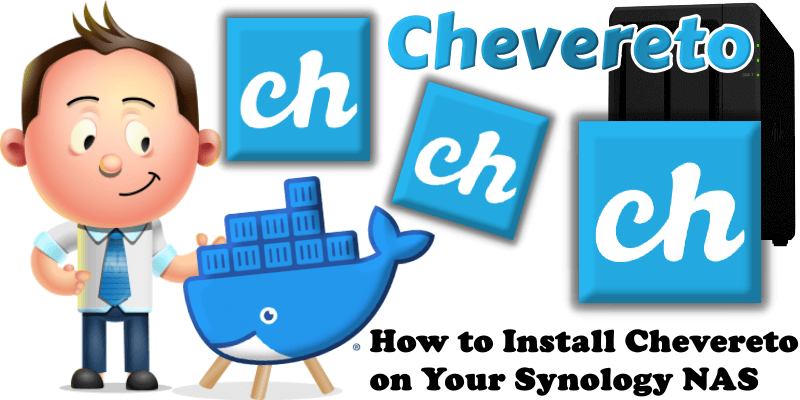
Chevereto allows you to create an image hosting website on your own server. It’s your hosting and your rules, say goodbye to closures and restrictions. Chevereto is a free alternative to Imgur and Flickr. It is made to replace the need for these services and cheaply run it on your server. In this step by step guide I will show you how to install Chevereto on your Synology NAS using Docker and Portainer.
This guide works perfectly with the latest Chevereto v4.4.2 release.
STEP 1
Please Support My work by Making a Donation.
STEP 2
Install Portainer using my step by step guide. If you already have Portainer installed on your Synology NAS, skip this STEP. Attention: Make sure you have installed the latest Portainer version.
STEP 3
Make sure you have a synology.me Wildcard Certificate. Follow my guide to get a Wildcard Certificate. If you already have a synology.me Wildcard certificate, skip this STEP.
STEP 4
Go to Control Panel / Login Portal / Advanced Tab / click Reverse Proxy. Follow the instructions in the image below.
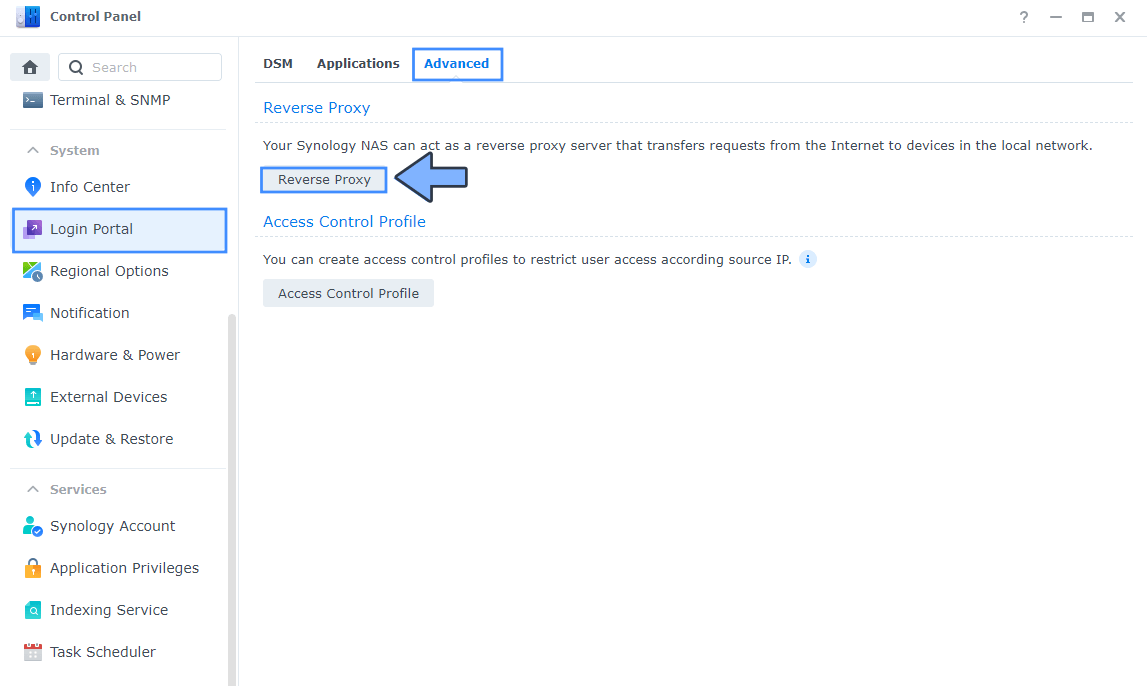
STEP 5
Now click the “Create” button. Follow the instructions in the image below.
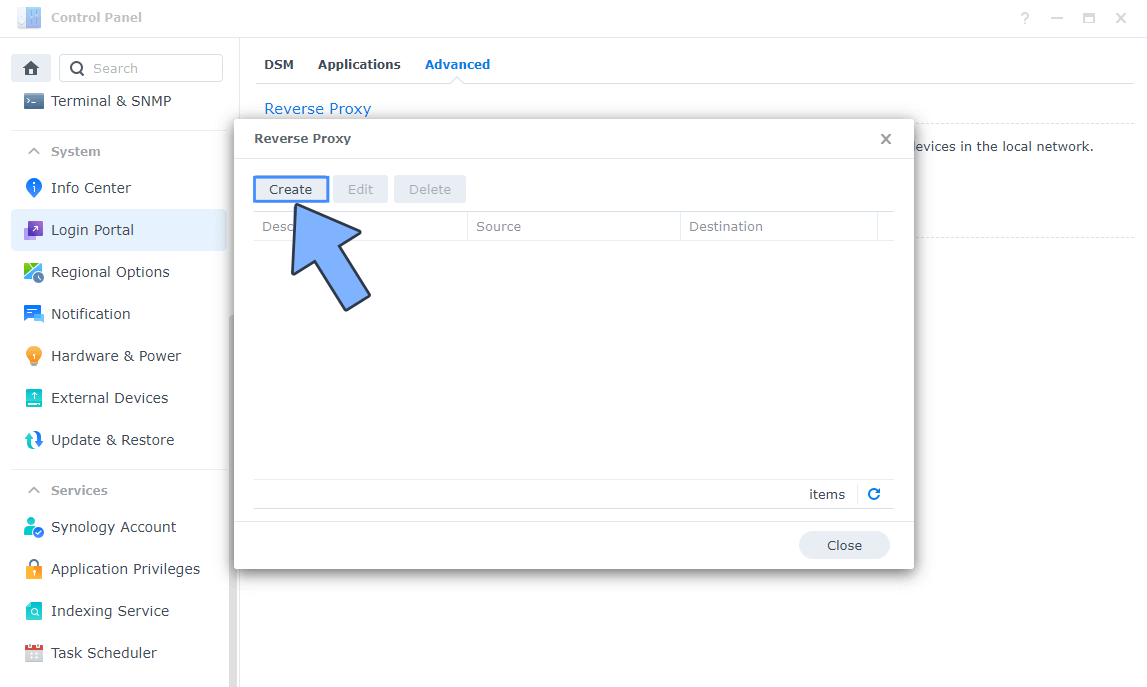
STEP 6
After you click the Create button, the window below will open. Follow the instructions in the image below.
On the General area, set the Reverse Proxy Name description: type in Chevereto. After that, add the following instructions:
Source:
Protocol: HTTPS
Hostname: chevereto.yourname.synology.me
Port: 443
Check Enable HSTS
Destination:
Protocol: HTTP
Hostname: localhost
Port: 4573
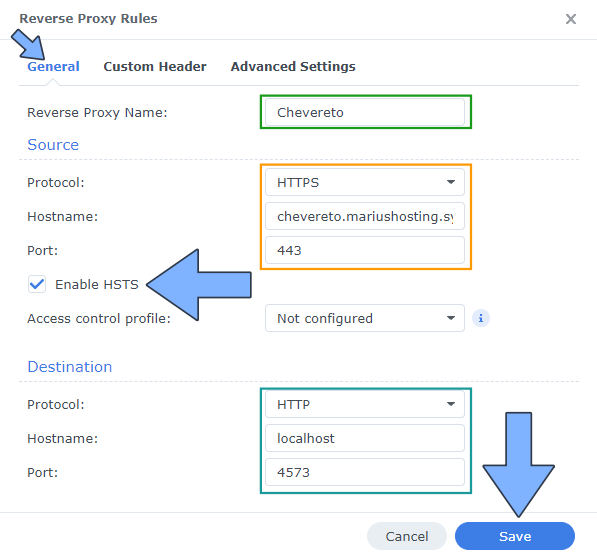
STEP 7
On the Reverse Proxy Rules click the Custom Header tab. Click Create and then, from the drop-down menu, click WebSocket. After you click on WebSocket, two Header Names and two Values will be automatically added. Click Save. Follow the instructions in the image below.

STEP 8
Go to Control Panel / Network / Connectivity tab/ Check Enable HTTP/2 then click Apply. Follow the instructions in the image below.
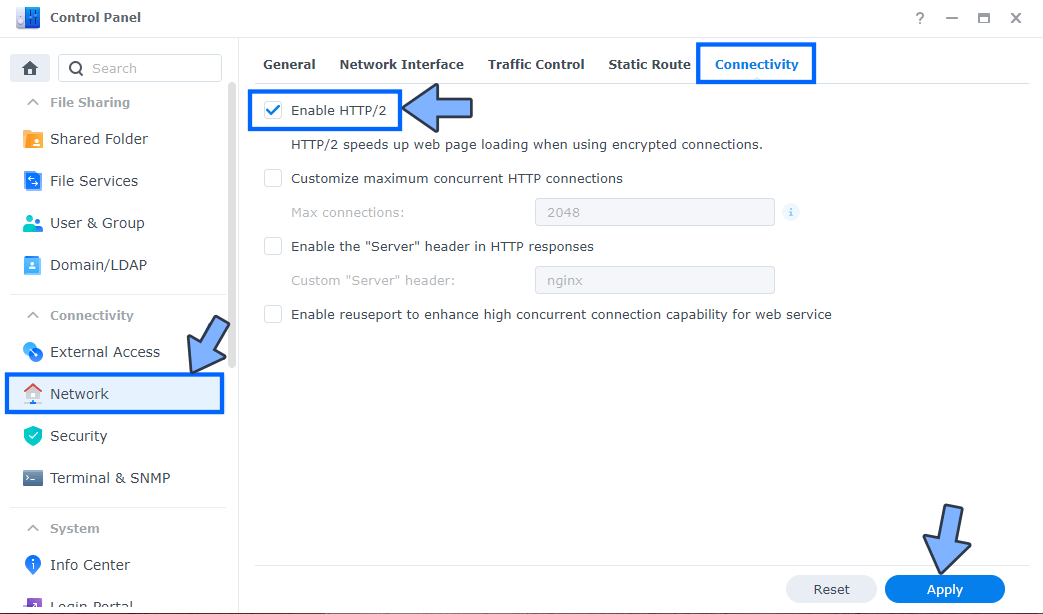
STEP 9
Go to Control Panel / Security / Advanced tab/ Check Enable HTTP Compression then click Apply. Follow the instructions in the image below.
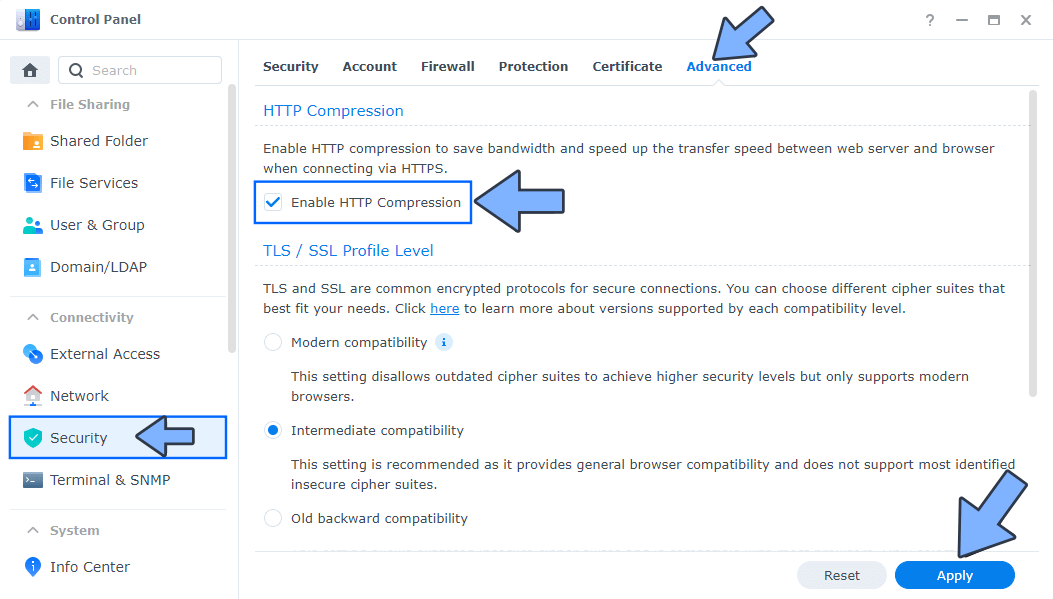
STEP 10
Go to File Station and open the docker folder. Inside the docker folder, create one new folder and name it chevereto. Follow the instructions in the image below.
Note: Be careful to enter only lowercase, not uppercase letters.
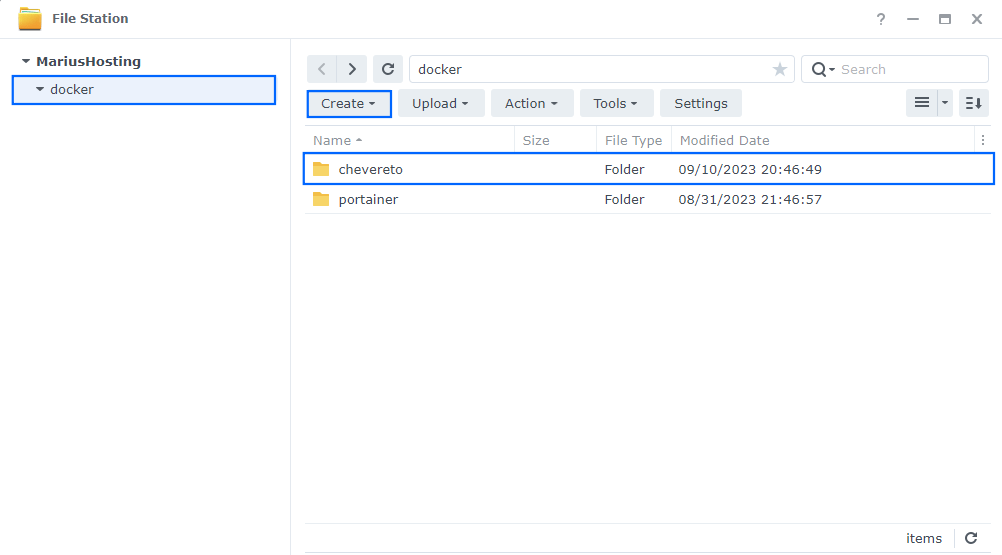
STEP 11
Now create two new folders inside the chevereto folder that you created at STEP 10 and name them db and storage. Follow the instructions in the image below.
Note: Be careful to enter only lowercase, not uppercase letters.
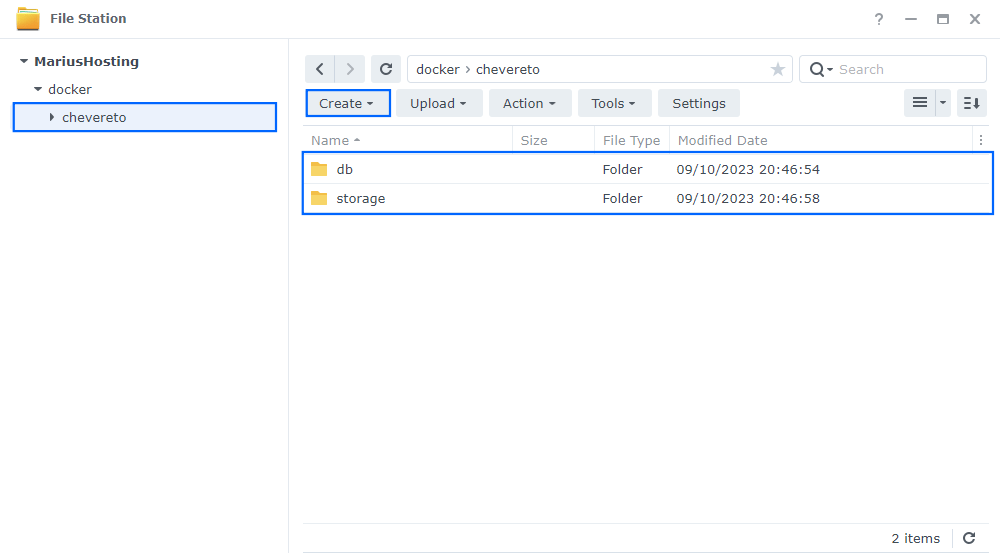
STEP 12
Download (click on the blue link below) and upload the my.cnf file below in the db folder that you have previously created at STEP 11. Follow the instructions in the image below. 🔒Note: Support my work to unlock the password. You can use this password to download any file on mariushosting forever!
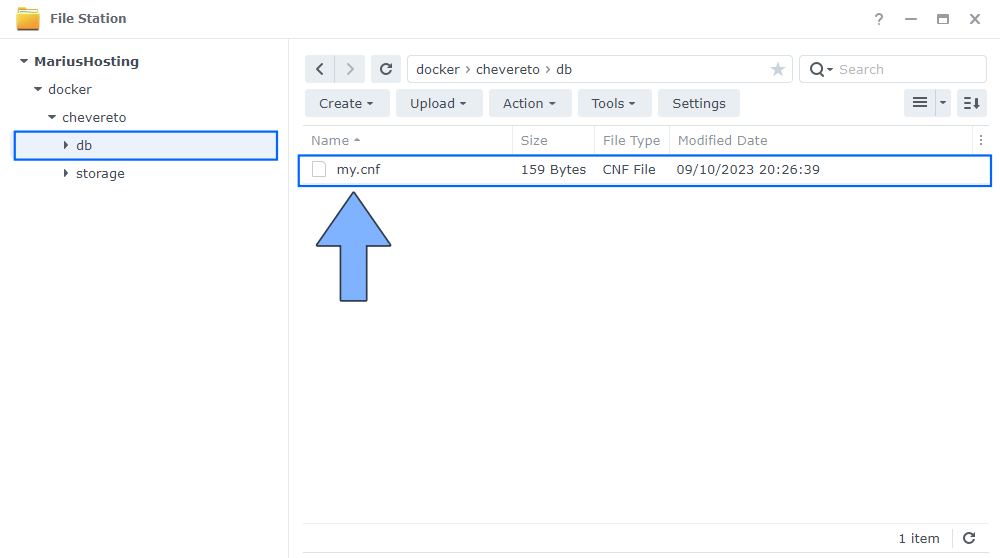
STEP 13
Now create one new folder inside the storage folder that you have previously created at STEP 11 and name it _assets. Follow the instructions in the image below.
Note: Be careful to enter only lowercase, not uppercase letters.
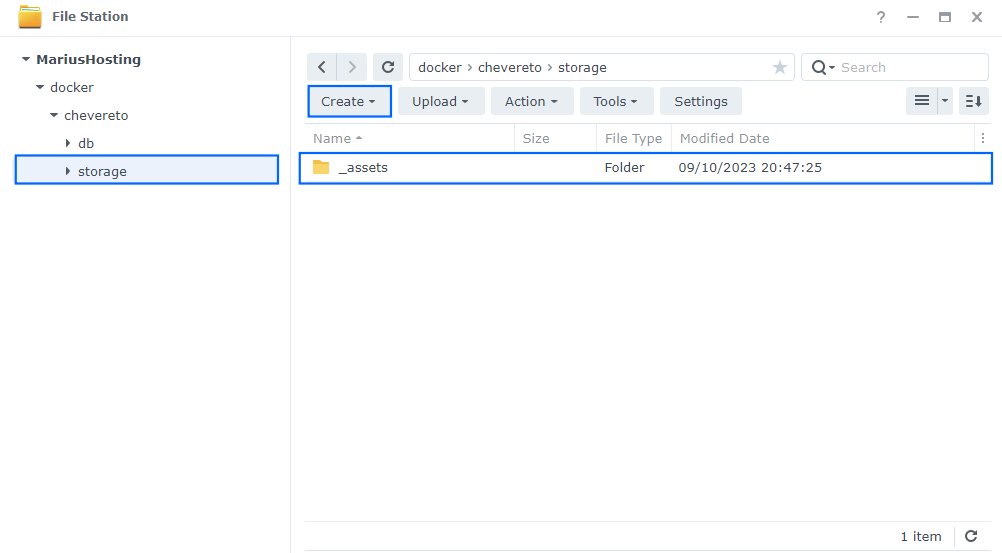
STEP 14
Right click on the chevereto folder that you have previously created at STEP 10 then click Properties. Follow the instructions in the image below.
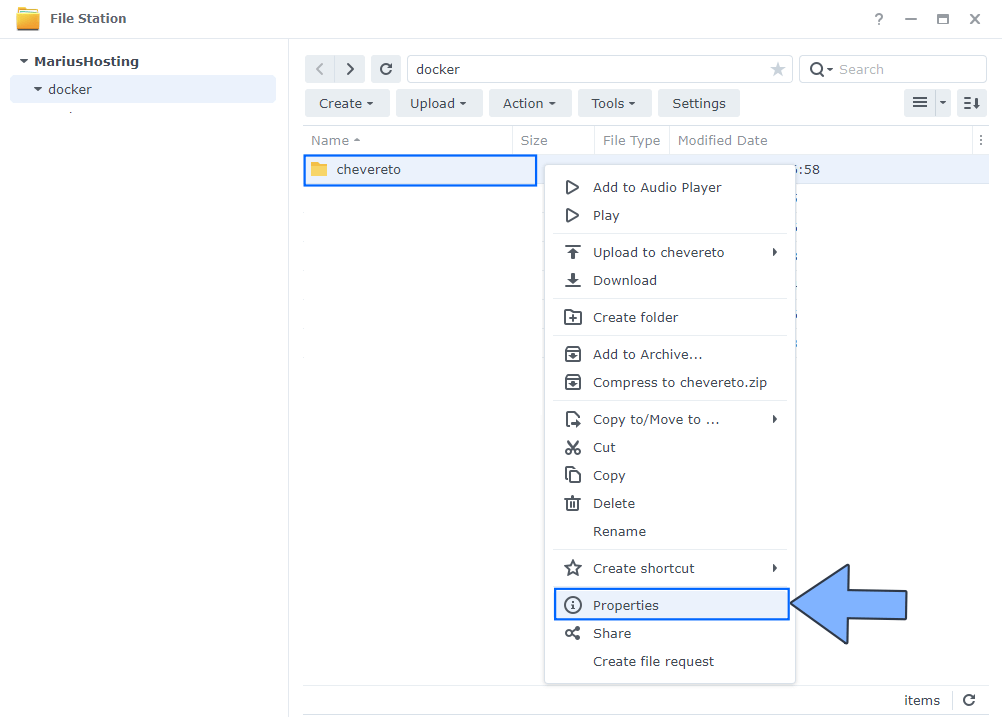
STEP 15
Go to the Permission tab then click Advanced options. From the drop-down menu choose “Make inherited permissions explicit“. Follow the instructions in the image below.
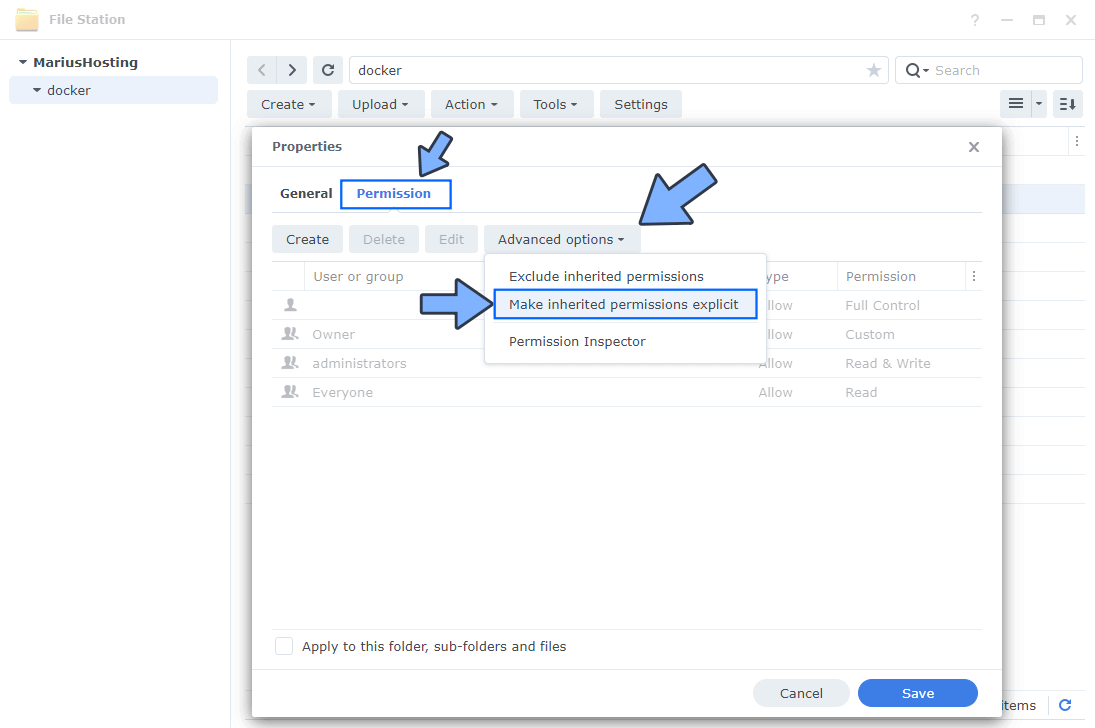
STEP 16
Select Everyone then click the Edit tab. Follow the instructions in the image below.
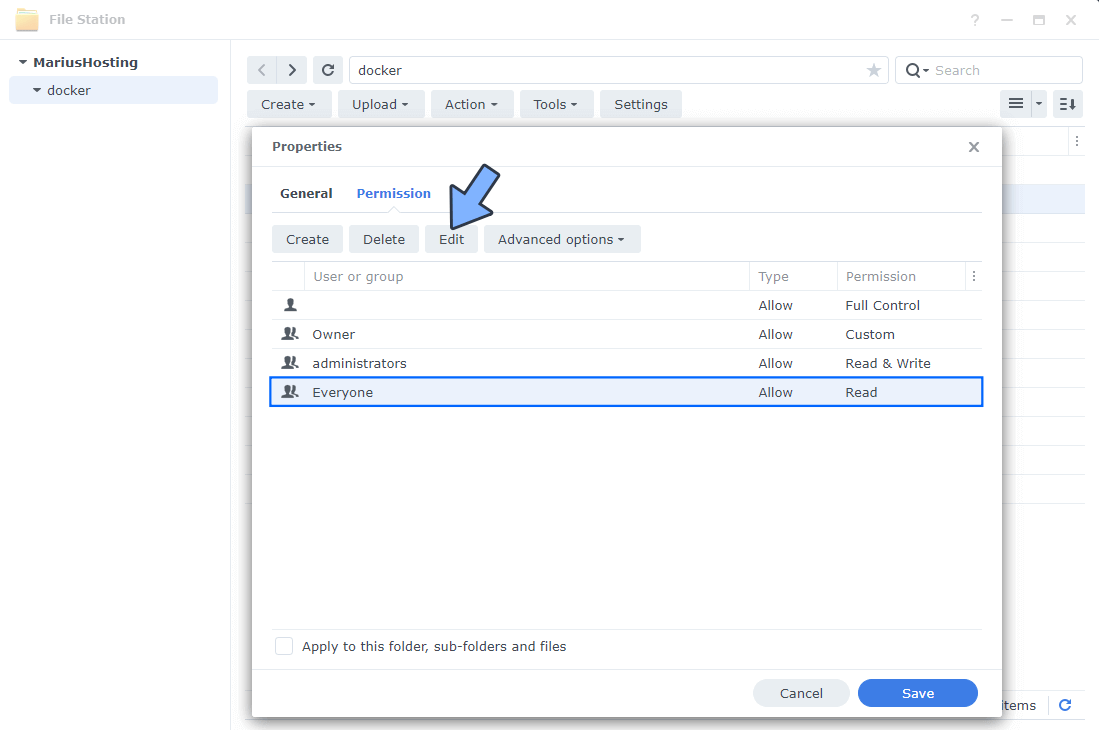
STEP 17
Check all Read and Write Permissions. Click Done. Follow the instructions in the image below.
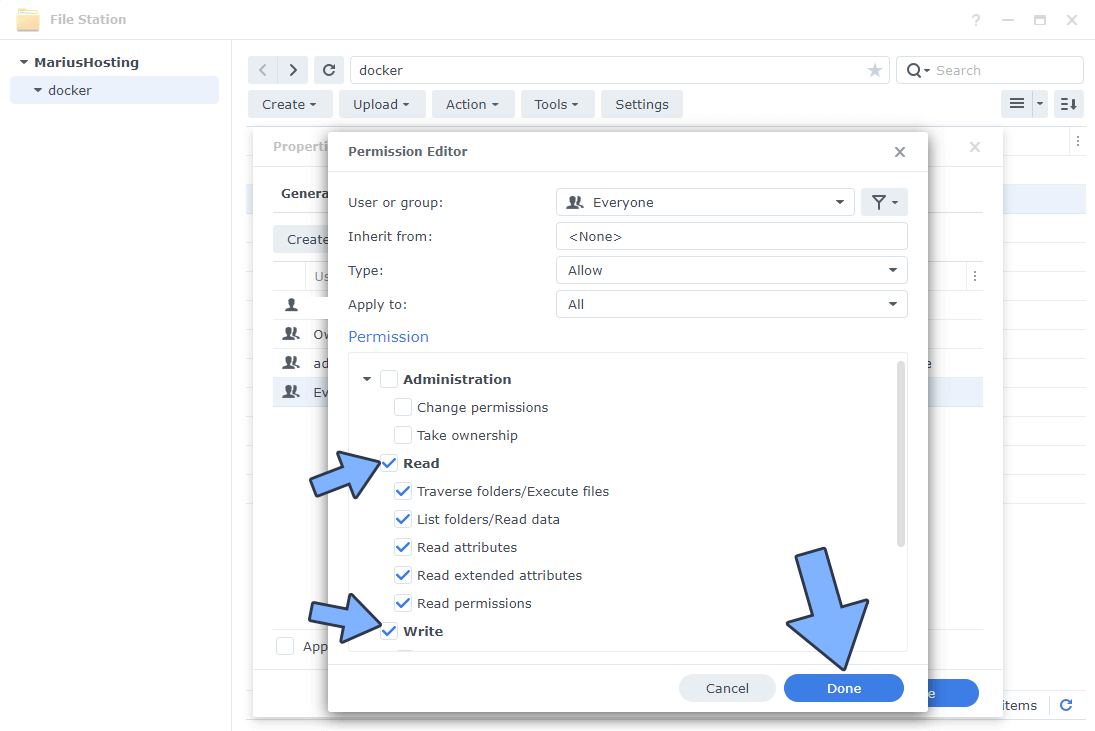
STEP 18
After you click Done on STEP 17, check “Apply to this folder, sub-folders and files“. Click Save. Follow the instructions in the image below.
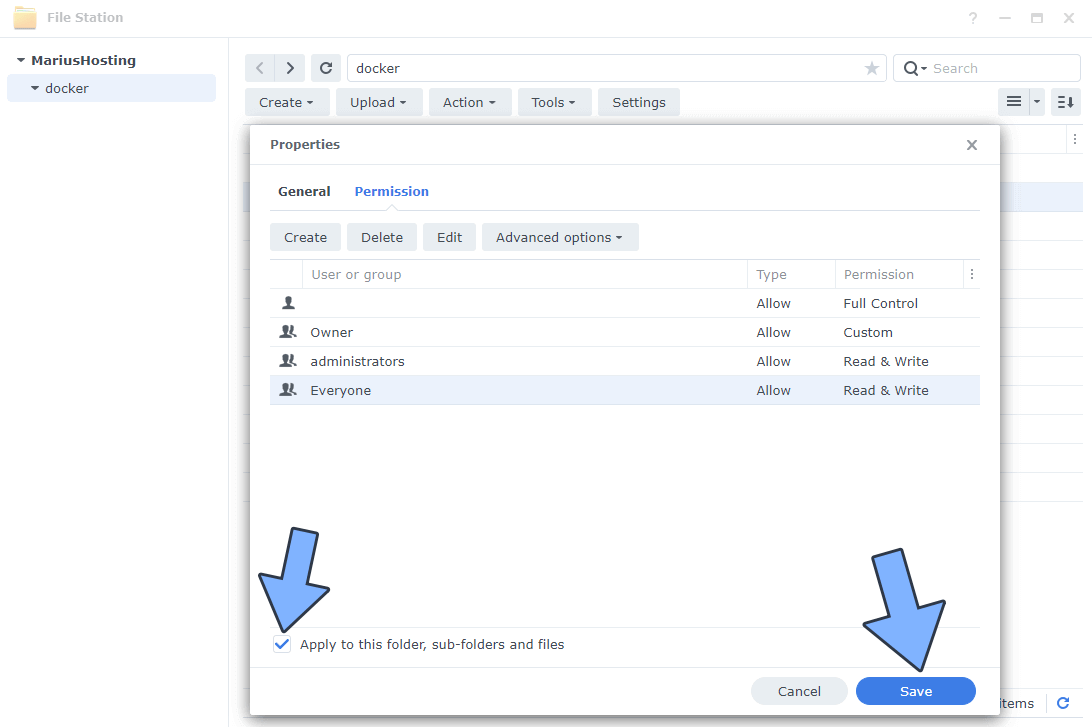
STEP 19
Log into Portainer using your username and password. On the left sidebar in Portainer, click on Home then Live connect. Follow the instructions in the image below.

On the left sidebar in Portainer, click on Stacks then + Add stack. Follow the instructions in the image below.

STEP 20
In the Name field type in chevereto. Follow the instructions in the image below.
services:
db:
image: mariadb:11.8-noble #LTS Long Time Support Until October 15, 2033.
container_name: Chevereto-DB
hostname: chevereto-db
mem_limit: 1g
cpu_shares: 768
security_opt:
- no-new-privileges:false
volumes:
- /volume1/docker/chevereto/db:/var/lib/mysql:rw
- /volume1/docker/chevereto/db:/etc/mysql/conf.d:rw
environment:
TZ: Europe/Bucharest
MARIADB_RANDOM_ROOT_PASSWORD: true
MARIADB_DATABASE: chevereto
MARIADB_USER: cheveretouser
MARIADB_PASSWORD: cheveretopass
restart: on-failure:5
chevereto:
image: ghcr.io/chevereto/chevereto:latest
container_name: Chevereto
hostname: chevereto
mem_limit: 4g
cpu_shares: 768
security_opt:
- no-new-privileges:true
healthcheck:
test: curl -f http://localhost:80/ || exit 1
ports:
- 4573:80
volumes:
- /volume1/docker/chevereto/storage:/var/www/html/images/:rw
environment:
CHEVERETO_DB_HOST: chevereto-db
CHEVERETO_DB_USER: cheveretouser
CHEVERETO_DB_PASS: cheveretopass
CHEVERETO_DB_PORT: 3306
CHEVERETO_DB_NAME: chevereto
CHEVERETO_HOSTNAME: chevereto.yourname.synology.me
CHEVERETO_HOSTNAME_PATH: /
CHEVERETO_HTTPS: 1
CHEVERETO_ASSET_STORAGE_TYPE: local
CHEVERETO_ASSET_STORAGE_URL: https://chevereto.yourname.synology.me/images/_assets/
CHEVERETO_ASSET_STORAGE_BUCKET: /var/www/html/images/_assets/
restart: on-failure:5
depends_on:
db:
condition: service_started
Note: Before you paste the code above in the Web editor area below, change the value numbers for user with your own UID and GID values. (Follow my step by step guide on how to do this.) 1026 is my personal UID value and 100 is my personal GID value. You have to type in your own values.
Note: After you paste the code in the Web editor, change the value for TZ (Select your current Time Zone from this list).
Note: Before you paste the code above in the Web editor area below, change the value for CHEVERETO_HOSTNAME with your own synology.me DDNS without https:// at the beginning that you have previously created at STEP 6.
Note: Before you paste the code above in the Web editor area below, change the value for CHEVERETO_ASSET_STORAGE_URL with your own synology.me DDNS with https:// at the beginning that you have previously created at STEP 6.
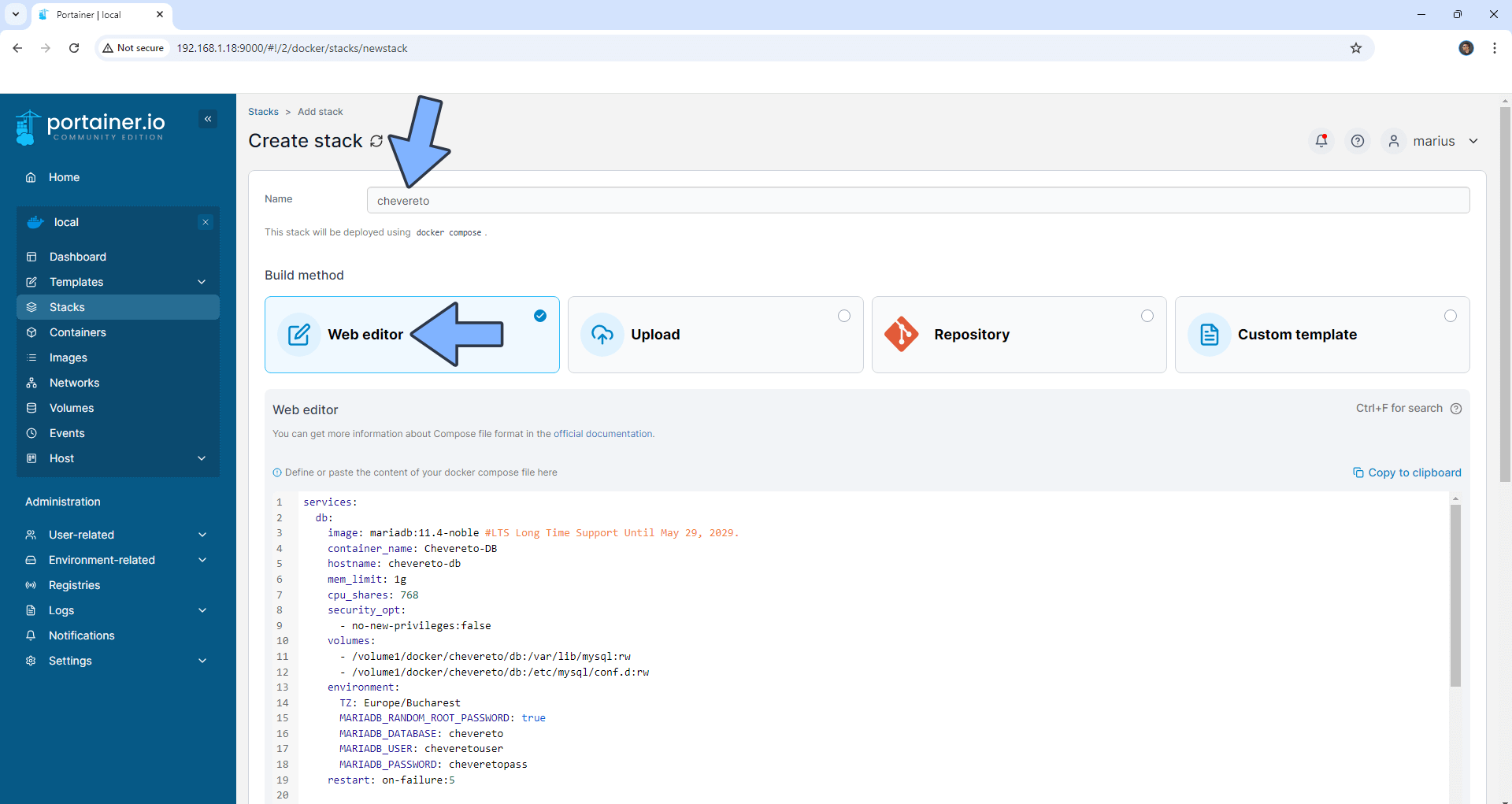
STEP 21
Scroll down on the page until you see a button named Deploy the stack. Click on it. Follow the instructions in the image below. The installation process can take up to a few minutes. It will depend on your Internet speed connection.
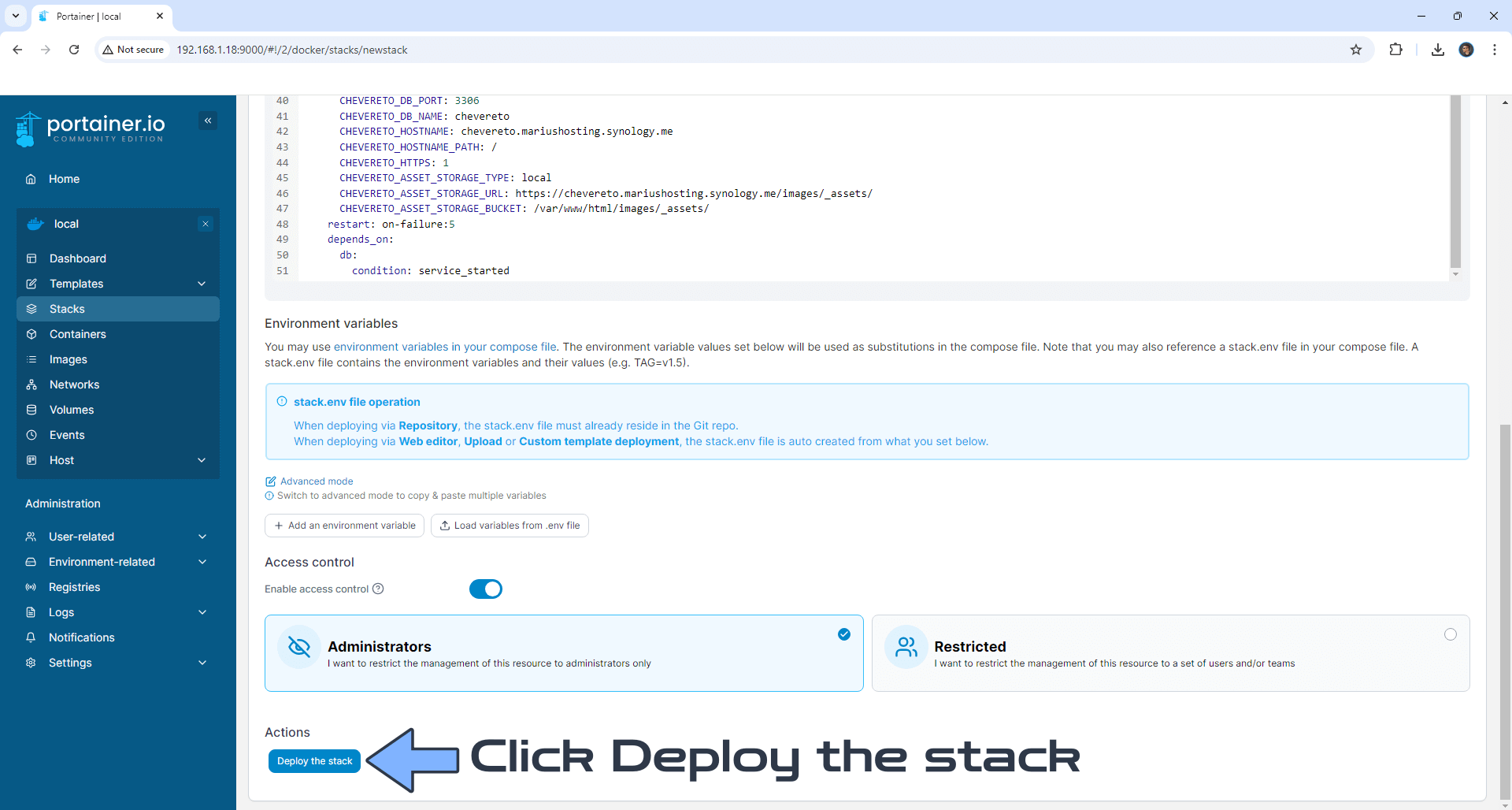
STEP 22
If everything goes right, you will see this message at the top right of your screen: “Success Stack successfully deployed“.

STEP 23
🟢Please Support My work by Making a Donation. Almost 99,9% of the people that install something using my guides forget to support my work, or just ignore STEP 1. I’ve been very honest about this aspect of my work since the beginning: I don’t run any ADS, I don’t require subscriptions, paid or otherwise, I don’t collect IPs, emails, and I don’t have any referral links from Amazon or other merchants. I also don’t have any POP-UPs or COOKIES. I have repeatedly been told over the years how much I have contributed to the community. It’s something I love doing and have been honest about my passion since the beginning. But I also Need The Community to Support me Back to be able to continue doing this work.
STEP 24
Now open your browser and type in your HTTPS/SSL certificate like this https://chevereto.yourname.synology.me In my case it’s https://chevereto.mariushosting.synology.me If everything goes right, you will see the Chevereto installation page. Type in your own Admin Username, Admin Email and Admin Password, then click Install. You should wait 2-3 minutes because the installation process will take some time. Follow the instructions in the image below.
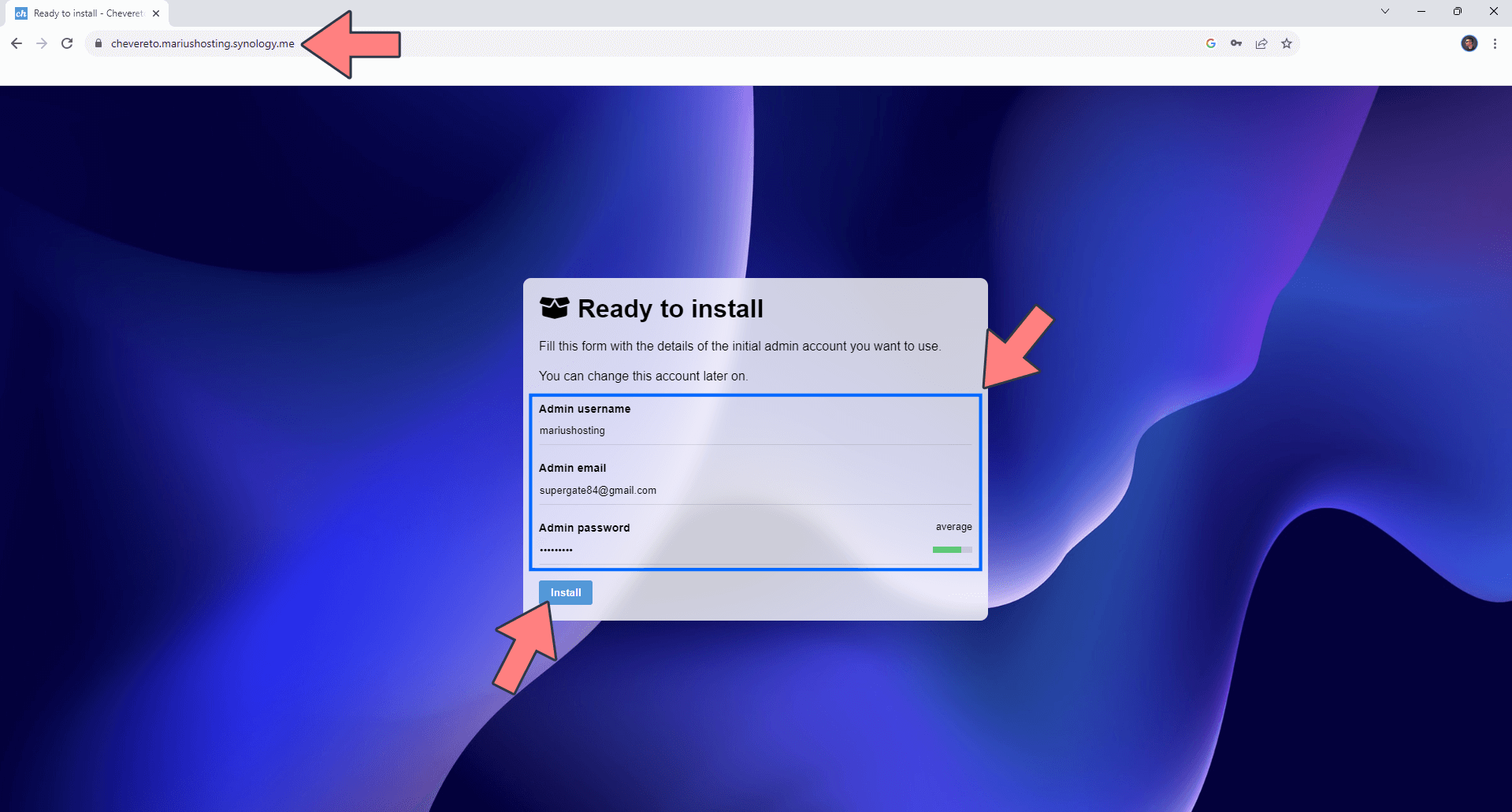
STEP 25
Installation complete. Click Dashboard. Follow the instructions in the image below.
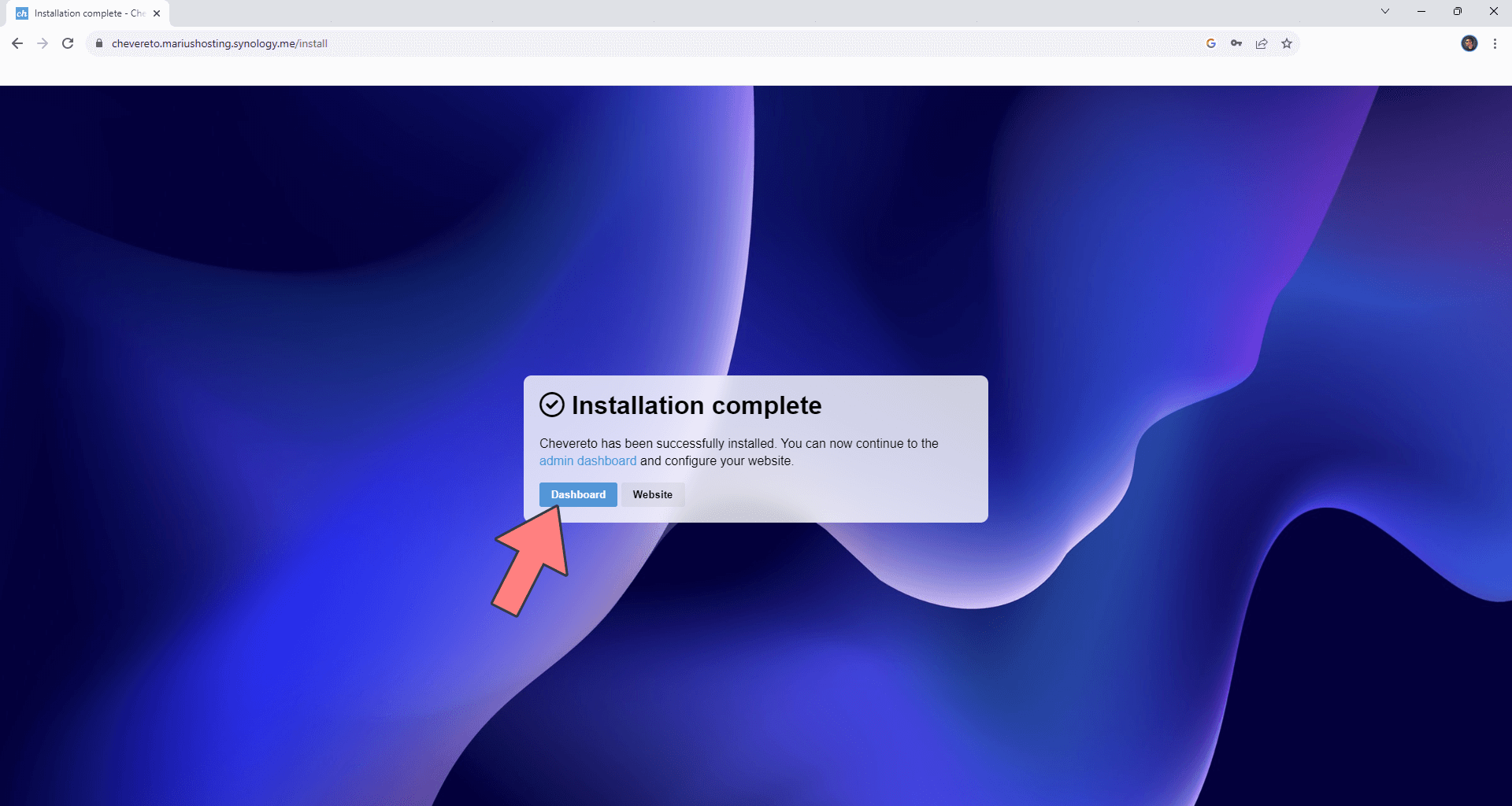
STEP 26
Type in your own Admin Email and Admin Password that you have previously created at STEP 24, then click the login icon. Follow the instructions in the image below.
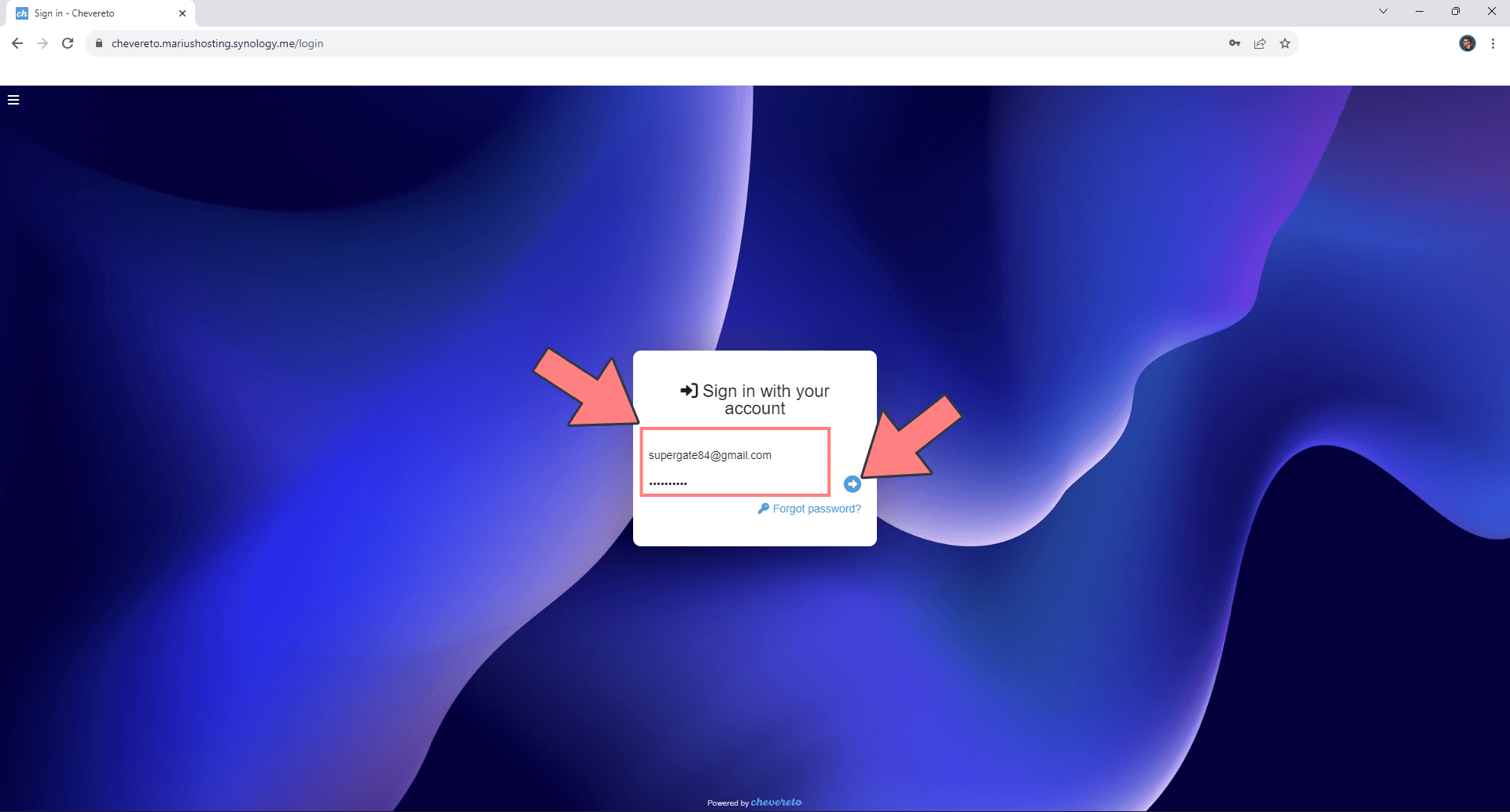
STEP 27
Start creating albums then upload your favorite photos/memories.
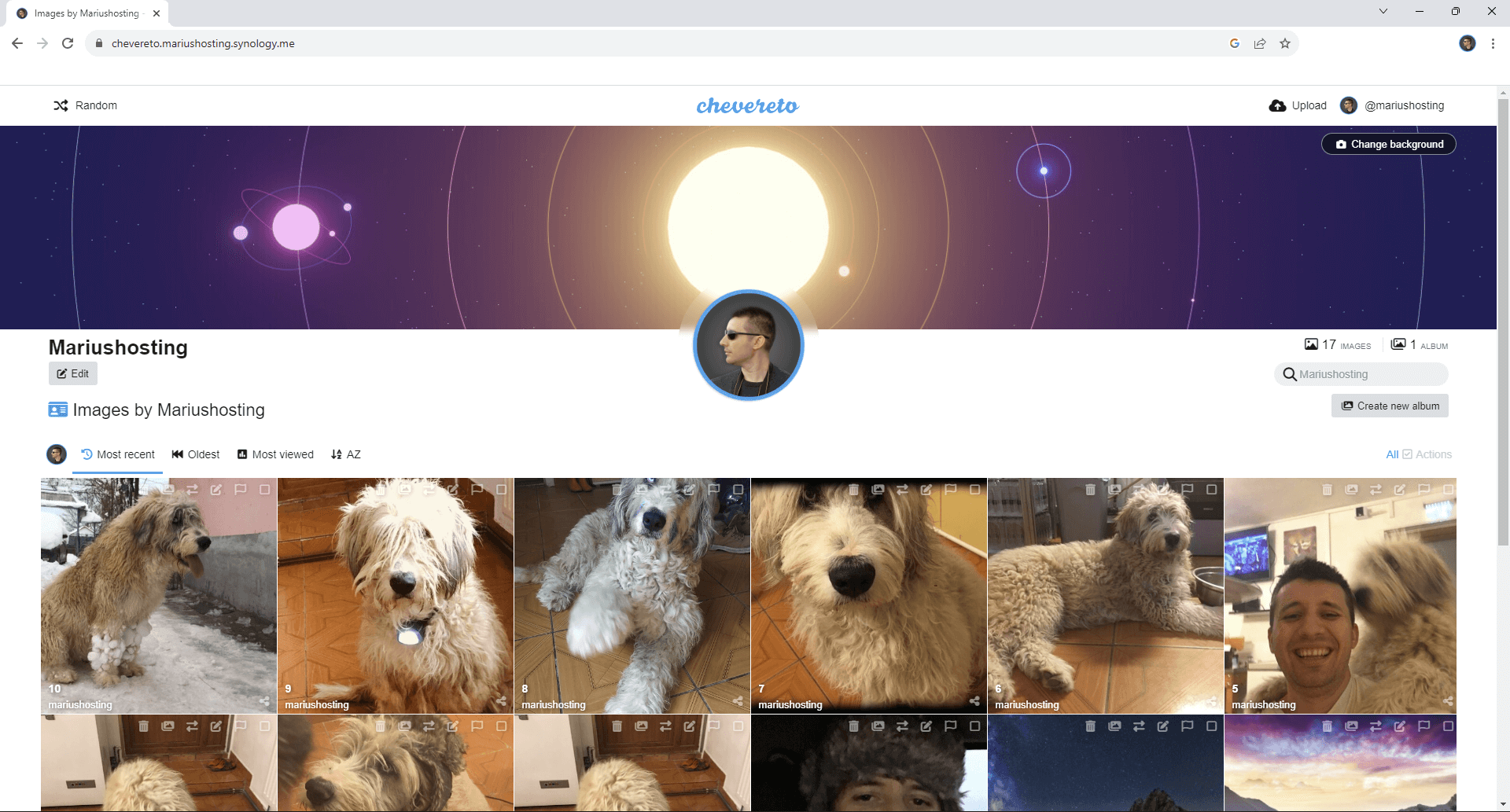
Enjoy Chevereto!
If you encounter issues by using this container, make sure to check out the Common Docker issues article.
Note: Can I run Docker on my Synology NAS? See the supported models.
Note: How to Back Up Docker Containers on your Synology NAS.
Note: Find out how to update the Chevereto container with the latest image.
Note: How to Free Disk Space on Your NAS if You Run Docker.
Note: How to Schedule Start & Stop For Docker Containers.
Note: How to Activate Email Notifications.
Note: How to Add Access Control Profile on Your NAS.
Note: How to Change Docker Containers Restart Policy.
Note: How to Use Docker Containers With VPN.
Note: Convert Docker Run Into Docker Compose.
Note: How to Clean Docker.
Note: How to Clean Docker Automatically.
Note: Best Practices When Using Docker and DDNS.
Note: Some Docker Containers Need WebSocket.
Note: Find out the Best NAS Models For Docker.
Note: Activate Gmail SMTP For Docker Containers.
This post was updated on Thursday / February 5th, 2026 at 5:25 PM
